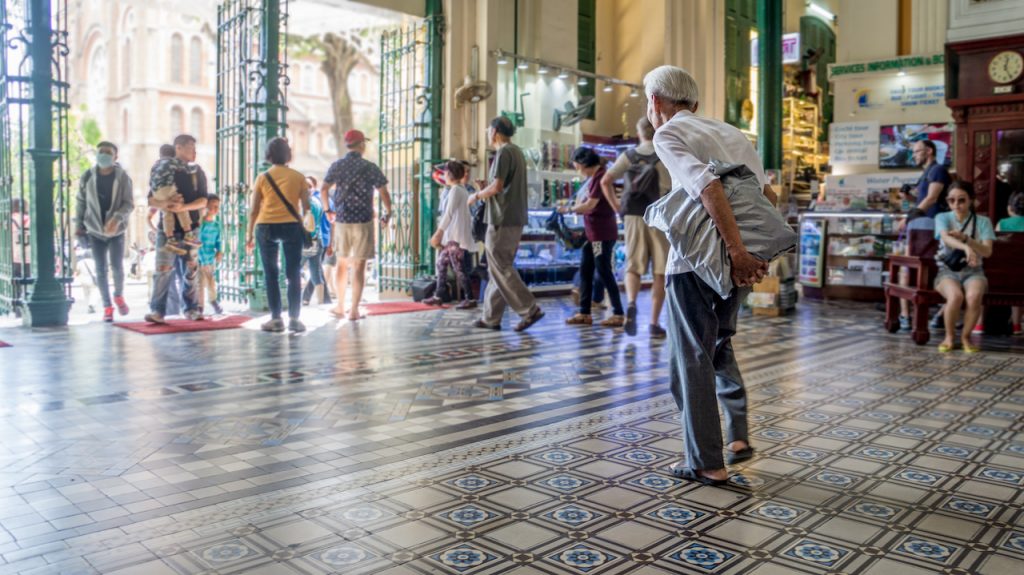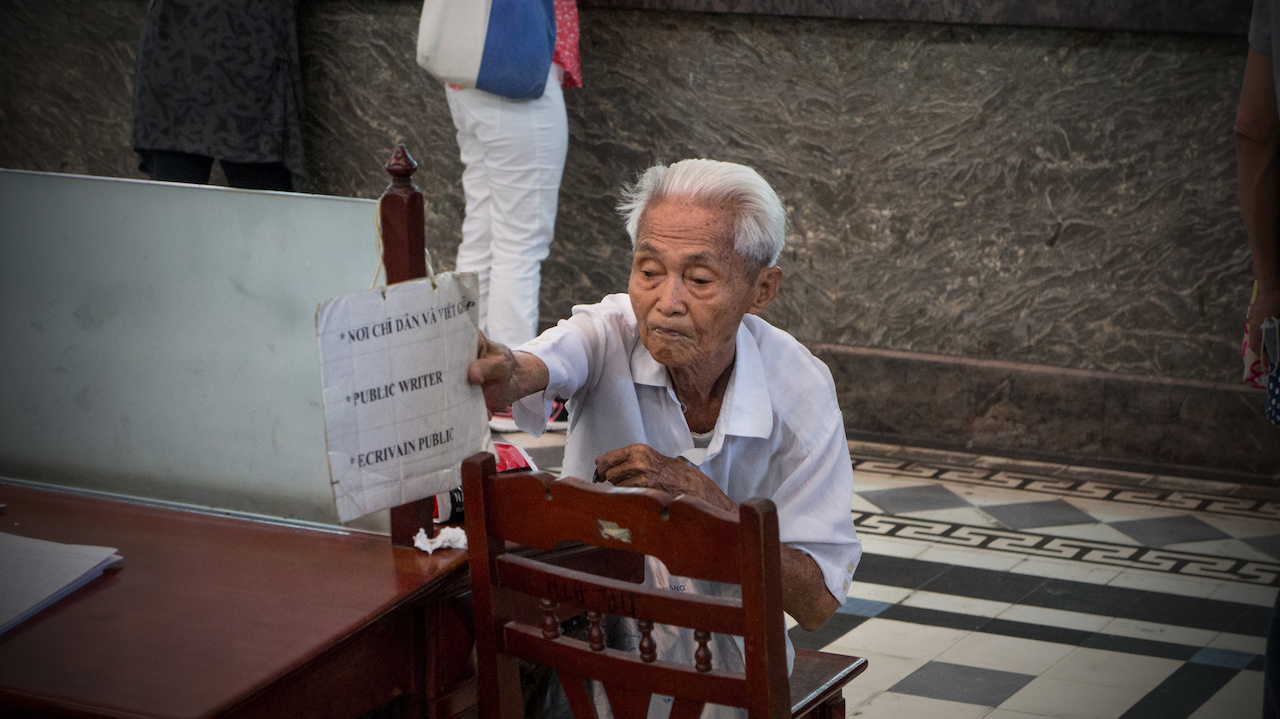As the 100-year-old French mansions and public buildings of Saigon meet their doom one by one, often at the hands of the developer’s wrecking ball, the 21st-century skyline of Ho Chi Minh City is rapidly emerging as a textbook urban mountainscape of mirrored glass and steel. In the food, the language, the coffee, the beer and the long leafy avenues, evidence of Vietnam’s old European master still exists. Between the modern tower blocks and skyscrapers, a hint of the past remains.
86-year-old Duong Van Ngo cycles to work each morning as he always has. His career at Saigon’s central Post Office began when he was 18 years-old, initially as a janitor and eventually rising up through the ranks. For the past 26 years, his office has been a small corner at a writing bench in the opulent public foyer.
It’s an impressive place to work. As one of the finest examples of 19th-century French architecture in Vietnam (the exposed steel framework inside was designed by Gustav Eiffel), the ‘Buu Dien’ of District 1 is a popular attraction for domestic and foreign tourists. For Ngo, it is his second home.
With frail hands he fishes a stack of French, English and Vietnamese dictionaries from his satchel and hangs up his sign: ‘Noi chi dan va viet giup,’ it reads in Vietnamese, ‘Ecrivain Public’ in French. In the years when Vietnam’s literacy rates had yet to reach the world-class levels of today, and well before Google Translate, Ngo’s services were vital. Today, he is Saigon’s last public writer.
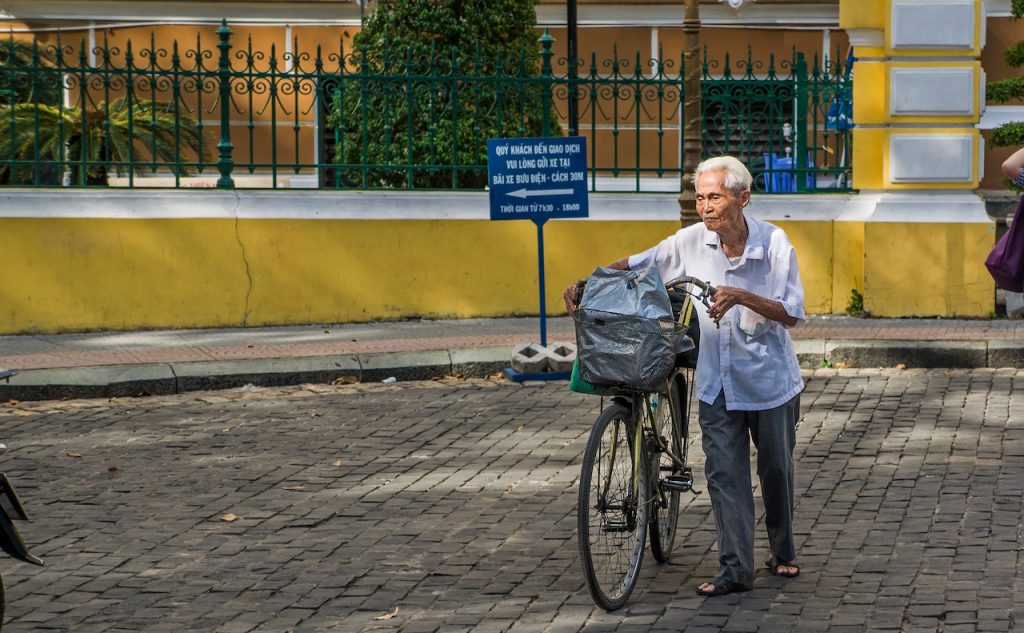
“When I first came here, there were four of us,” he says quietly, my ears straining to hear him through the hubbub of tourists and the screech of packing tape from the nearby parcel counter.
“Many people would come and ask us to translate letters into French or English, but now it is rare. Instead, people ask me to help them write out addresses in foreign countries, or tourists come asking me to write Vietnamese messages on their postcards.”
Like the building in which he works, Ngo is a poignant reminder of the foreign imperial forces that forged this country. Since the French conquest of Saigon in 1859 and the eventual foundation of French Indochina in 1887, to the full evacuation of US forces on 30 April 1975, Vietnam fought hard for the independence it now enjoys.
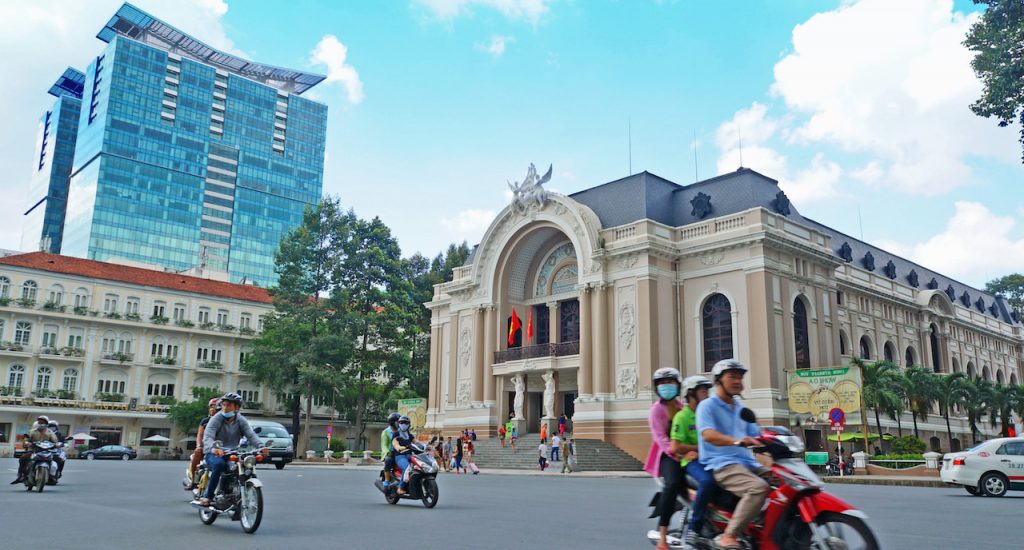
Many of the laws and public institutions that still exist in Vietnam today are remnants of the colonial era. For those who attended school before 1954, learning the language of the Frenchman was mandatory. In Ho Chi Minh City today, there are still whispers of this old tongue among the more senior generations. With a copy of Le Monde newspaper under their arms goes a rapidly fading memory of Saigon’s former life.
“I learned French when I was seven years-old,” adds Ngo. “Later, when I was 36 [years-old], the post office sent me back to school to learn English to help serve the public.”
That was in 1966, at the height of the Vietnam War. Northern Ho Chi Minh was in violent conflict with the American-backed South, and Saigon was flooded with US Military and civilian personnel. For Ngo, it was business as usual as he practised and refined his third language with the English-speakers around him.
Upon retiring in 1990 at the age of 60, Ngo chose to continue serving the city he loved so much by becoming a public writer. With a McDonald’s restaurant now on one side of the post office and a Dunkin’ Doughnuts on the other, it’s a city he barely recognizes today. He admits that he’s still catching up with the modern street names after their French monikers were switched out in the mid-50s.
“Everything has changed in Saigon,” he says, “but in this post office, not much. Even the floor is the same from the old times until now.”
he says humbly, “It is my duty to forget.”
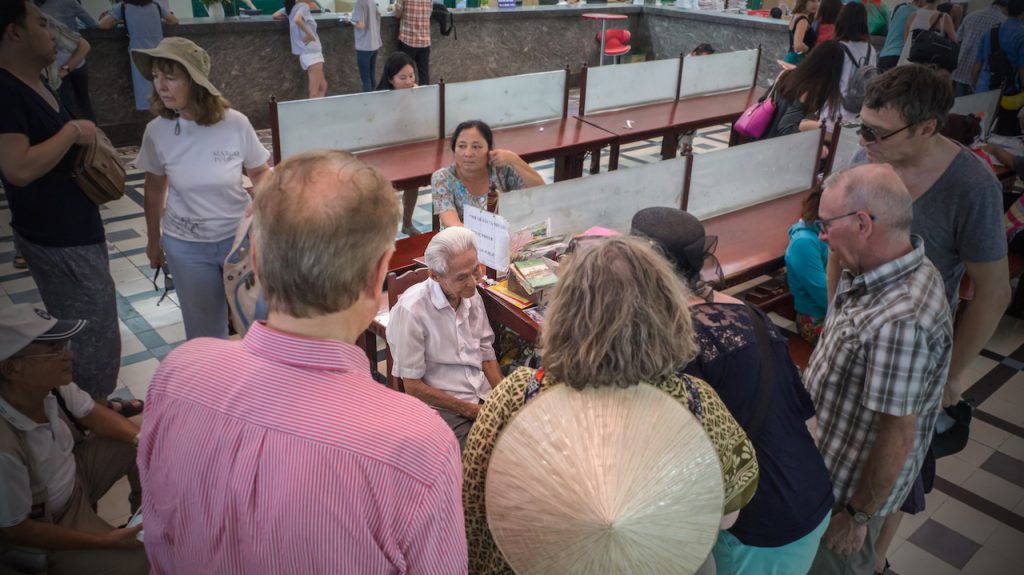
The written word is as powerful as the bombs that once tore these lands in two, and Ngo has seen and heard the effects of both. There have been letters of love and hope, of sadness, grief and regret. Some involved families torn apart, having fled the dark years of war to live in foreign lands with strange, indecipherable addresses and postal codes.
“Can you help me write to my son?” some have asked, “My daughter. My husband. Will he be home for the Lunar New Year?”
The words of children and grandchildren, writing from California, Texas or even London, have passed through his talented hands; even the letters of former GIs writing in search of the children they left behind.
When I ask about the more memorable items of correspondence that he has written or translated, he says humbly, “It is my duty to forget.” His eyes hide tales that we today can only imagine, his discretion and professionalism clearly his most prized traits.
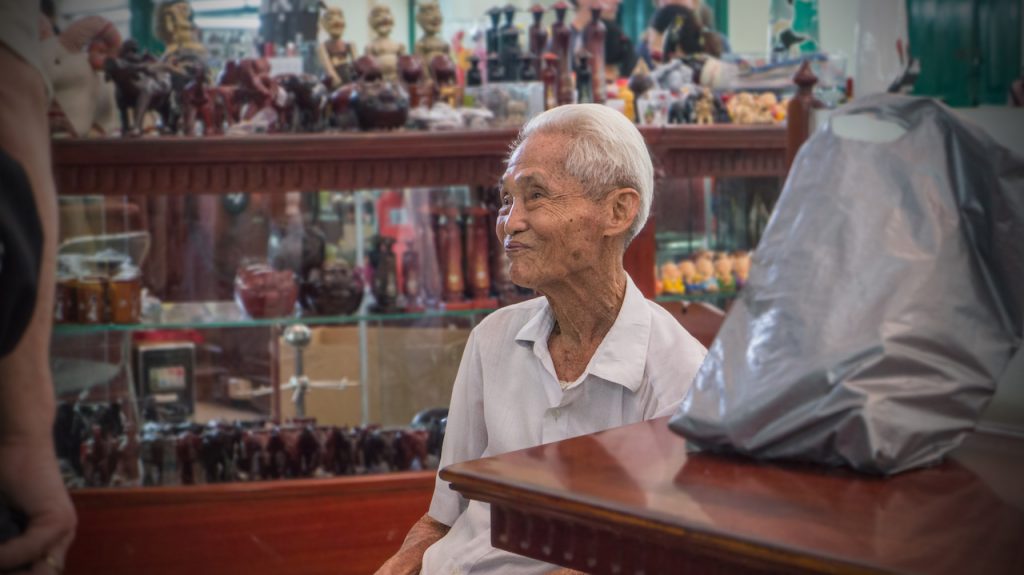
Whether translating letters and documents between three languages, reading and writing correspondence for those who cannot, or simply chatting with visitors about this, his favorite building in Saigon, the past 26 years have been a peaceful retirement for the man who lived through so many decades of war. “In coming to work here,” he tells me, “I feel more joyous than staying at home.”
Having been relied upon for so many years by Saigon’s poorest citizens, Ngo has never charged a fee for those who missed out on the education so many today take for granted.
“It depends on [the person],” he adds. “I do not ask for anything, but people are very kind.”
Before I leave, he shows me his albums and scrapbooks laden with photos and newspaper clippings, his arthritic hands clawed and weak as he strokes the pages. Foreign dignitaries, TV camera crews, journalists, and countless well-wishers from all over the globe have all taken a seat at Ngo’s desk.
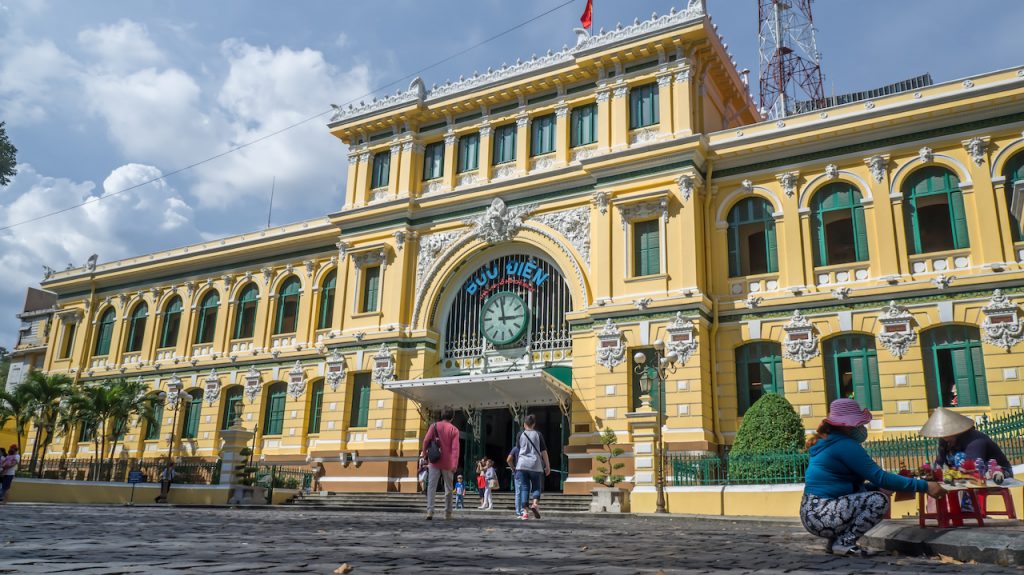
After wishing him farewell, I head back out into the searing Saigon sun. From the post office’s cobbled courtyard, it’s still possible to see the secret extraction point where, on April 30th 1975, Hubart Van Es famously photographed a CIA Huey as it plucked two dozen or more desperate South Vietnamese citizens from a rooftop, the North Vietnamese army just hours away from storming the city.
If you want to catch a glimpse of historic Saigon, do it quick. In the short time I’ve been talking to Ngo, it feels like the city outside is already different somehow.
“I’m afraid that I will forget you,” he’d said as we parted company—I’d promised to say hello when I next visited to mail a letter or parcel. It seems that carrying out his ‘duty’ comes far easier than it used to.
“Because of my age, I will forget you.”
